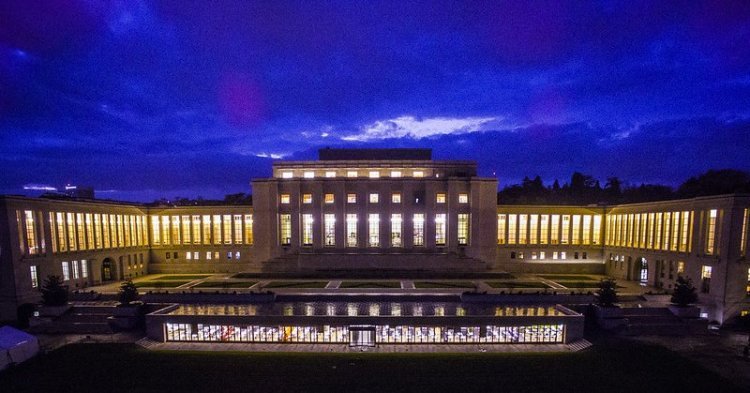However, human activity driven by industrialization, modernization, urbanization, population growth, and technological progress has had a dramatic impact on the climate ecosystem, sustainability on our economic model, and life on Earth. From both policy and regulatory perspectives, humanity is simply unprepared for these crises. More and more, developments in the global system affect the realization of fundamental social goals such as political freedom, security, prosperity, ecological stability, and sustainability.
In reflecting on our future and how we can overcome today’s problems, we cannot ignore the discussions about the organization of our civilization, who represents our interests, and, above all, who is supposed to defend all of us, citizens of the globe, from these risks that we all share. States face a multitude of problems that transcend national boundaries and political tasks that they cannot successfully address alone. Often, they clash over important policy issues that, in the absence of even simple international coordination or management, demonstrate all their ineffectiveness.
It is therefore correct to include the organization of civilization as we know it among the greatest challenges facing humanity: pandemics, the climate crisis, conflicts, migration, discrimination and inequality. Global governance until now has been nothing more than the political line dictated by the most ’powerful’ nation state. For the last few decades, this role has been played by the United States, on the strength of its economy, influence in the world and military power. The competition for leadership of the world order is extremely active, and this should not surprise us. What should rather surprise us, and make us suspicious, is the total absence of international actors other than states, i.e. international organizations.
We should ask ourselves who can defend our rights, and guarantee us a healthy, safe and prosperous life. We will have to ask ourselves why democracies in the world have come to a standstill in recent years and why even in countries that have always been democratic a reverse trend has been noted. Hand in hand with the concept of democracy, there is that of representation. Not only political, therefore through a democratic process, transparent and stable over time, but also of the interests of society. Global interconnectivity has not brought democracy to a supranational level, but has almost created the opposite: a set of sentiments driven by populist forces behind the rhetoric that nation-states are the ones who can best take care of their citizens.
It is simply bizarre to think that in today’s world there is no place where the citizens of the world, beyond their nationality, religion and cultural backgrounds can be represented and deal with global issues. Multilevel democracy, after all, is not intended to repress all other democratic systems, but rather to apply one of the principles with which we Europeans are familiar: the principle of subsidiarity.
That is why it is time to ask ourselves how international organizations, especially the UN, can represent all the citizens of the world. How to build the basis for a world federation, the only way to ensure that world order is not a concept linked to warfare but, as we federalists know, to the Kantian concept of perpetual peace. This is why on the occasion of the International Day for Multilateralism and Diplomacy for Peace on 24 April, a group of over 80 civil society organisations (CSOs), including the Young European Federalists, endorsed a joint statement “for more inclusive global governance” and calls for a more inclusive and democratic United Nations (UN).
Specifically, the calls are to implement three institutional changes to strengthen the inclusive and democratic character of the UN:
• The creation of the instrument of a World Citizens’ Initiative (UNWCI) which enables people to put forward proposals on key issues of global concern for discussion and further action at the highest political level. Any proposal that reaches a certain threshold of popular support should be put onto the agenda of the UN General Assembly or Security Council;
• The creation of a UN Parliamentary Assembly (UNPA) which allows for the inclusion of elected representatives in the agenda-setting and decision-making of the UN. The assembly will act as a representative body and watchdog connecting the people with the UN and reflecting a broad diversity of global viewpoints;
• Setting up the office of a UN Civil Society Envoy to enable greater participation, spur inclusive convenings and drive the UN’s outreach to the public and civil society organisations. This envoy should champion the implementation of a broader strategy for opening up the UN to people’s participation and civil society voices.
JEF Europe has been endorsing the UNPA and UNWCI campaigns from the very beginning. In fact, the World Citizens’ Initiative is a proposal that is in line with the concept of people-centered multilateral cooperation in a spirit of global citizenship and perfectly reflects the work of federalists in the European Union and beyond. We urge representatives of UN member states interested in this change and ready to launch an open and inclusive preparatory process for the establishment of a UNPA.
Civil society groups and individuals shall join also the international Campaign for a UN World Citizens’ Initiative and provide their own comments and thoughts on the recommendations and reflections put forward in this report. A resolution adopted by the UN-General Assembly on the occasion of the UN’s 75th anniversary in 2020 tasked UN Secretary-General Antonio Guterres to compile a report on furthering a “common agenda” which includes upgrading the UN and boosting partnerships.
It is strategically important that CSO’s use this opportunity to make the UN fit-for-purpose and calls on the UN Secretary-General to usher the UN into a new, more participatory era. Andreas Bummel, Executive Director of Democracy Without Borders, has said that: “Strengthening and revitalizing multilateralism requires allowing for more input and participation beyond member states. This is what our three proposals will achieve."
The proposed changes, hopefully, will enhance the legitimacy of global governance and these instruments should allow the UN to act more effectively when it comes to tackling global challenges, and overcome blockages that are built into the current UN system and global order.


Follow the comments: |
|
